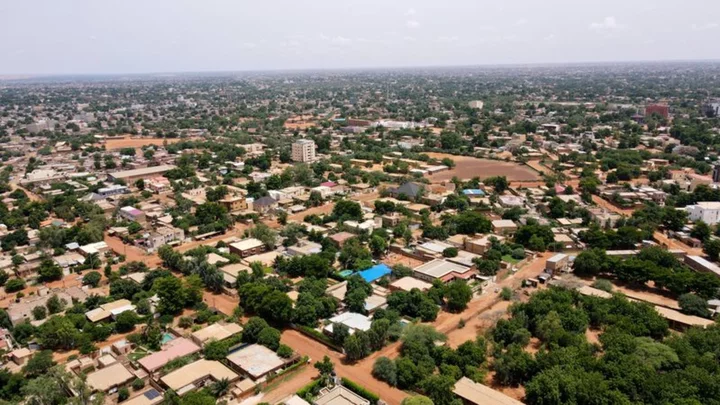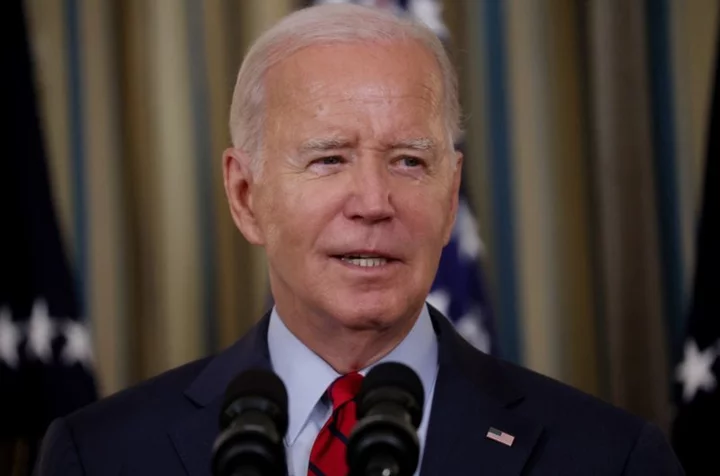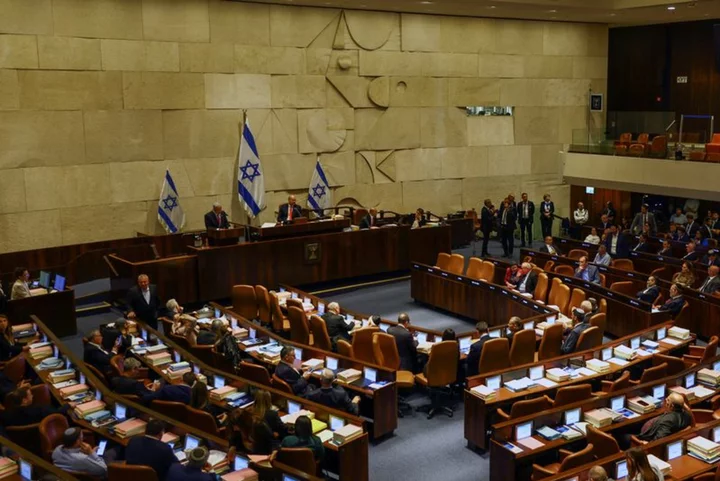By Boureima Balima
NIAMEY (Reuters) -Niger's capital was calm on Sunday, with citizens appearing undaunted by the threat of military intervention by West Africa's regional bloc, as its ultimatum for the country's coup leaders to reinstate the president expires.
On Niamey's streets there were sporadic displays of support for but no signs of opposition to the junta, which has said it will not cave in to external pressure to stand down following the July 26 power grab.
The seventh coup in West and Central Africa in three years has rocked the western Sahel region, one of the poorest in the world and which has strategic significance for Russia, China and the West partly due to Niger's rich uranium and oil deposits.
Blasting military tunes and tooting vuvuzela horns, over 100 people set up a picket near an air base in Niamey on Saturday evening and pledged to offer non-violent resistance in support of the new army-led administration if needed.
Defence chiefs of the Economic Community of West African States (ECOWAS) agreed on military action on July 30, including when and where to strike, if the detained President, Mohamed Bazoum, was not released and reinstated by Sunday.
ECOWAS did not respond to a request for comment on what its next steps would be, or when exactly on Sunday its deadline expires. A spokesman said it would issue a statement at the end of the day.
On the picket line, where organisers led chants of 'Vive Niger', much of the emotion appeared directed against ECOWAS as well as former colonial power France, which said on Saturday it would support regional efforts to overturn the coup, without specifying if that included military assistance.
"The Nigerien people have understood that these imperialists want to bring about our demise. And God willing, they will be the ones to suffer for it," said pensioner Amadou Adamou.
Sunday's television broadcasts included a roundtable debate on spurring solidarity in the face of looming ECOWAS sanctions, which have led to power cuts and soaring food prices.
The bloc's military pledge has triggered fears of further conflict in a region already battling a deadly Islamist insurgency that has killed thousands and forced millions to flee.
"I am not worried because I know that any military intervention by ECOWAS in Niger would be a loss for this organisation. It is not in the interest of its leaders," 59-year-old housewife Hadjo Hadjia told Reuters in a quiet Niamey street.
Any military intervention by ECOWAS could be complicated by a promise from juntas in neighbouring Mali and Burkina Faso to come to Niger's defence if needed.
Bazoum's Prime Minister Ouhoumoudou Mahamadou said on Saturday in Paris that the ousted regime still believed a last-minute agreement was possible.
On Sunday, Italy said it had reduced its troop numbers in Niger to make room in its military base for Italian civilians who may need protection if security deteriorates.
(Additional reporting by Felix Onuah; Writing by Alessandra Prentice; editing by John Stonestreet)









